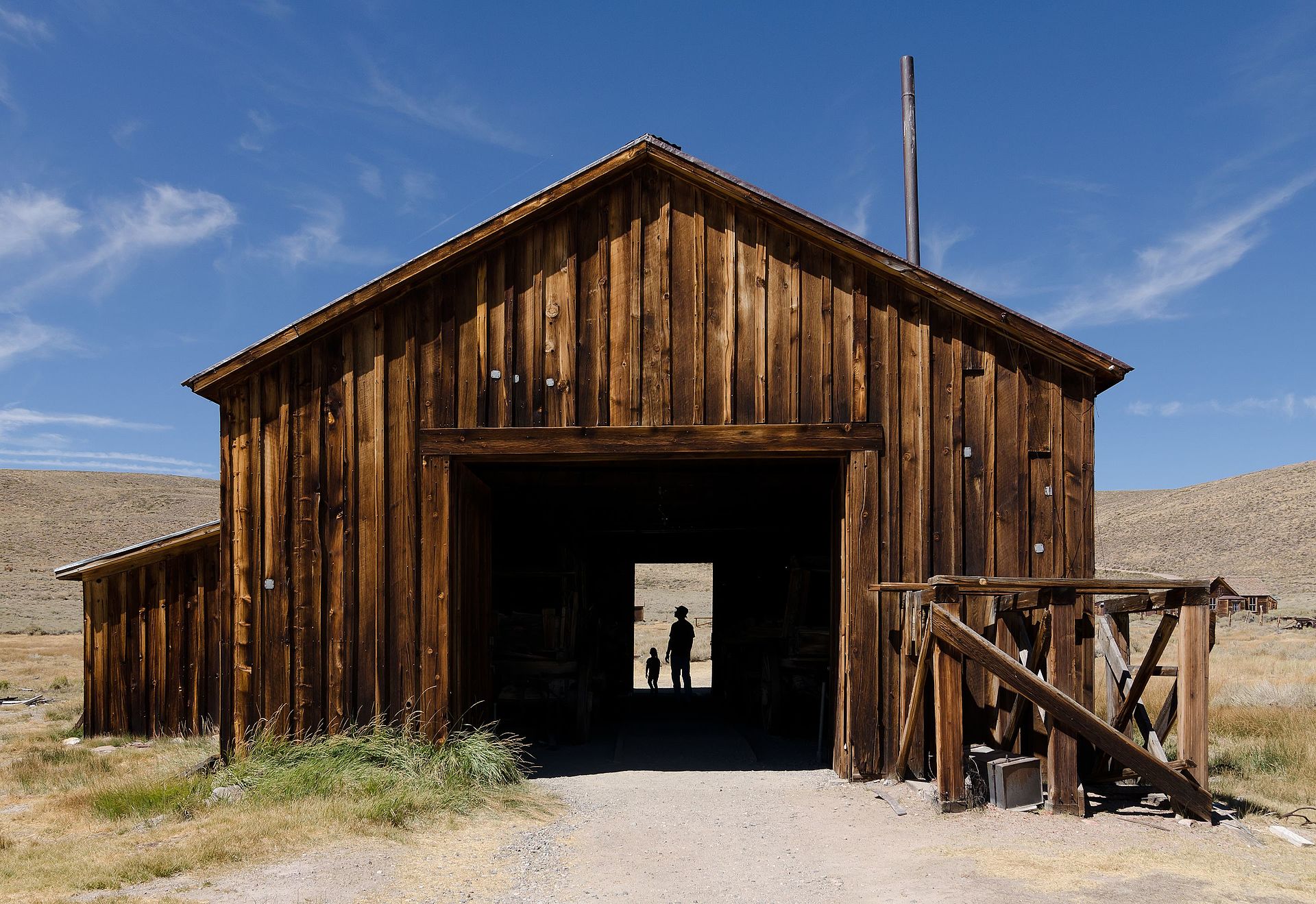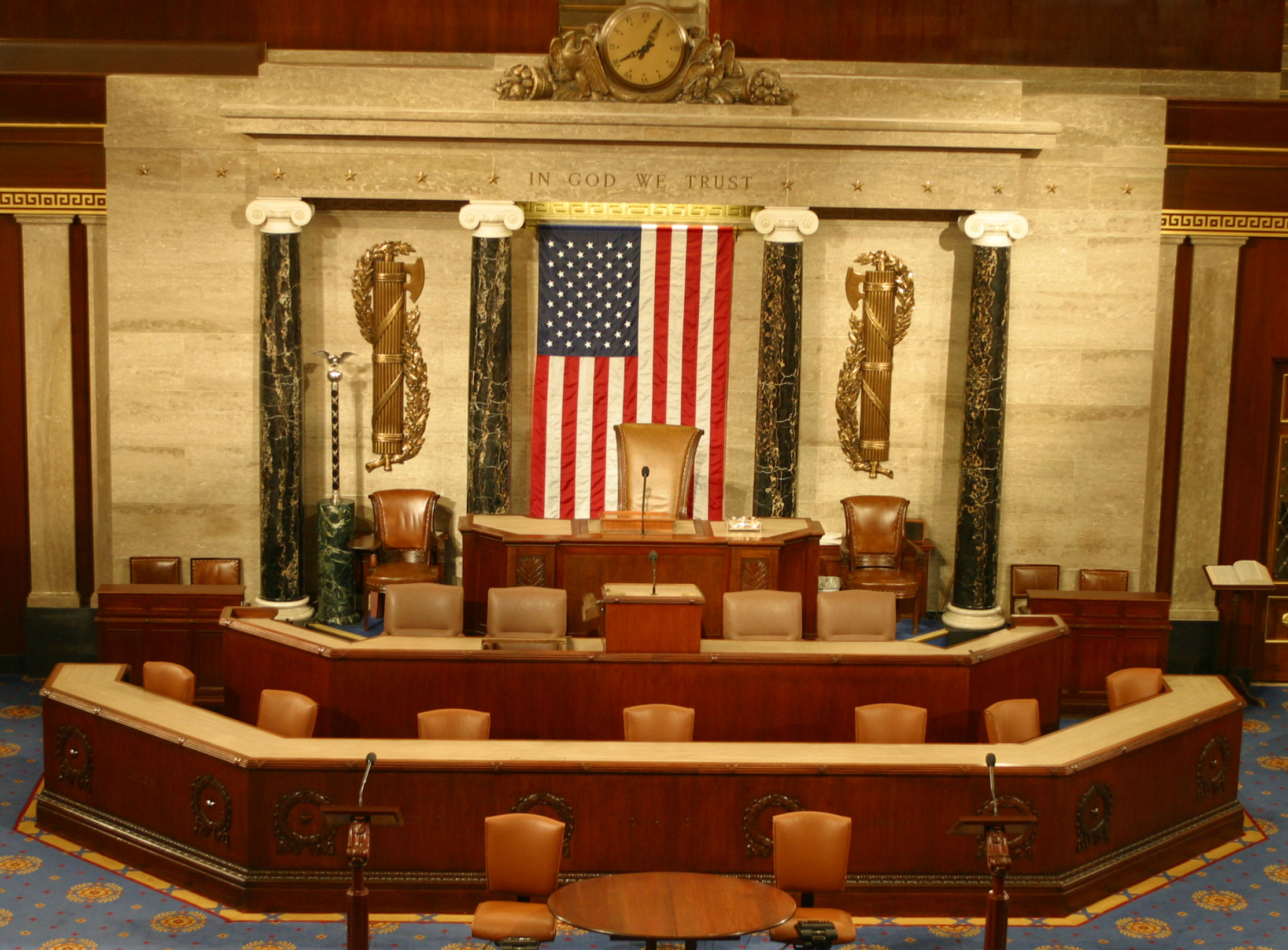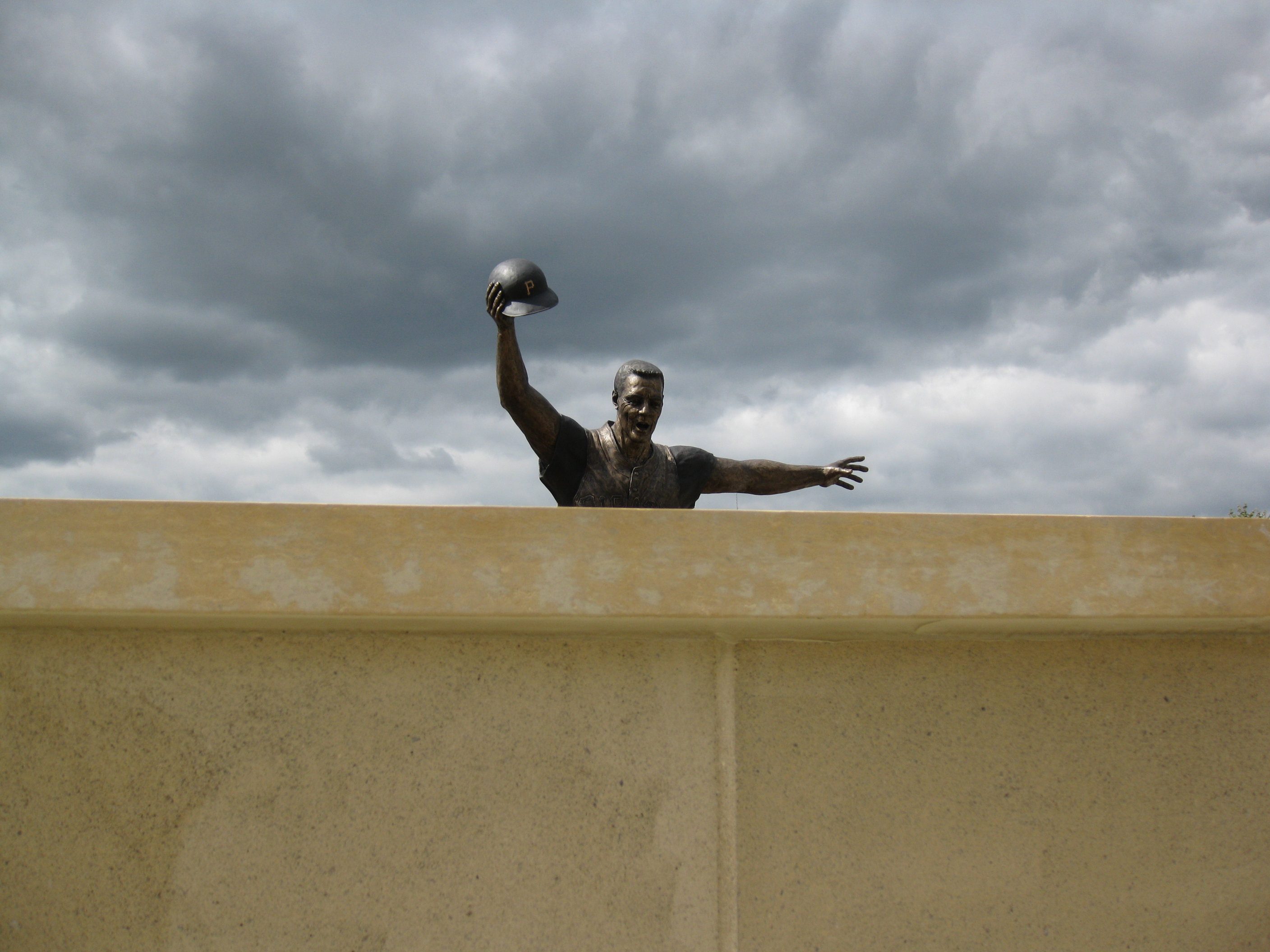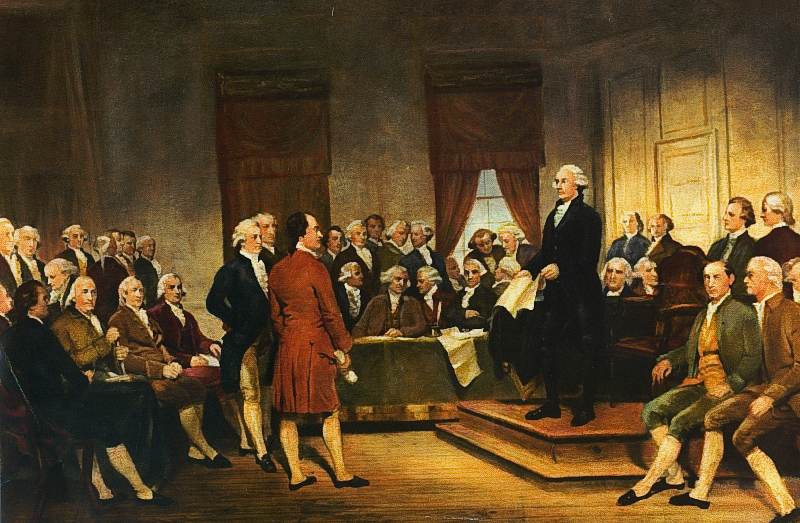Set Yourselves Free, Conservatives

Or die waiting for a narrative to save you.
I remember exactly where I was the moment I stopped believing in Conservatism, Inc. I was watching Romney lose, badly, on election night 2012. Up until that point, it seemed logical that the problems of the world could be addressed by the head of a national political party. A great leader could change minds and inspire souls, and in so doing Americans could repair broken social and political institutions that had been functioning poorly or simply not at all—for decades. At the time, I believed we just needed the right candidate to win. Then the other side would stop ruining everything.
In that strange age when you’re too young to have a real job and steady career but suddenly old enough to experience the early-marriage avalanche of bills and mortgages and kids, Romney’s defeat meant that Conservatism, Inc. wasn’t going to solve my problems any time soon. As I let myself despair that nothing would be fixed, that nothing could possibly be fixed, at least for another four long years, the ridiculousness of this mindset became apparent.
Being a conservative means being acutely, painfully aware of broken family structures, communities, institutions and government while simultaneously being completely ignorant as to how any of these problems will ever be solved. Conservatives can recite by chapter and verse the legislative, judicial, and executive actions that wrecked the country. We know ruin was conceived by Woodrow Wilson, baptized by Franklin Roosevelt, accelerated by Lyndon Johnson, and glamorized by Barack Obama. For over 60 years, conservatism has been a movement in need of a time machine—to go back and prevent the country from being destroyed by people who died fifty years before any of us was even born.
On election night 2012, it was suddenly clear to me how little of the Grand Conservative Narrative of “maybe next time” had anything to do with my actual life. The GOP had lost presidential elections before, but this one was more devastating for two reasons: one, because Barack Obama and the Democrats had finally unveiled—and mobilized—the deeply leftist intentions behind a lot of liberal talking points; two, because the people running Conservatism, Inc., didn’t seem to mind losing all that much. They were resigned to it. I, on the other hand, had a five-year-old and no decent elementary school. I was out of time. I had been waiting for the Grand Narrative to come sailing in, win a national election, and solve all of my big-government problems for me.
Doing it Right means doing it ourselves
The day I gave up on Conservatism, Inc. was the day I became an actual small-government conservative. Ours is a political philosophy predicated on the principle of subsidiarity, which means that government functions best closest to the governed. State and federal governments should take up only those functions which the local governments are unable to perform. Unlike libertarians, we believe that government is by nature a good thing, a natural thing, and that justice and liberty occur when each level of government does everything it is capable of doing well, and no more. The most basic distinction between progressives and conservatives is that the former believe that a national, centralized government is the instrument by which society’s strengths are dispensed and its problems solved. Small-government conservatives believe that the government closest to the citizen is more accountable, effective, and just regarding almost everything the citizen needs. Part of being a complete person, after all, involves self-rule, legislating, and building one’s own community with one’s neighbors.
It is absurd to wait for a national leader or a national party to come along and “solve” things as intimate and complex as local housing, broken homes and marriages, and substandard schooling. The Left’s long march through the institutions, fueled by the idea that top-down fixes are not just possible but morally necessary, has laid waste to much of what once made this country great. How could the solution to the damage they caused be an equally nationalized and centralized countermarch?
We know the administrative state must be undone, but there has never been a workable plan; only ceaseless dismay about its size, persistence, and ills. Right now, millions of people depend on the welfare state, the social safety net, and the various programs built by the New Deal, the Great Society, the Civil Rights Movement, and Obamacare. How does the Right plan to wean society off of those federal programs? How does the Right plan to teach people to self-govern again, when so many of us are used to the most important decisions in our lives being made for us thousands of miles away, by people totally unaccountable to us? How does the Right plan to arrive at a society of self-governing citizens capable of maintaining healthy families, businesses, towns, cities, and states without federal meddling and subsidy? Privatize social security?
Until we can answer questions like these, we are a narrative, not a movement. We are not serious about where we are going.
Americans may someday vote to move the burden of caring for seniors, the ill, the poor, and the infirm from federal to state government, or from state government to local governments. But they will never vote to simply remove government programs, slash the safety net, and let vulnerable citizens fall where they may. Nor should they. Isn’t it obvious that we have to rebuild our hollowed-out communities, bolster our states, and fortify our society such that it is competent to take over from the bloated, inefficient, and unjust federal regime before we ask America to vote to dismantle it?
We have to start at home. Here in my county, my family and friends don’t see ourselves as opposed to or fearful of the larger community, but rather as its defenders, cheerleaders, servants, and faithful sons and daughters. In the years since the 2012 election my husband and I pooled our resources with a small group of friends to build a one-room schoolhouse and hire a good teacher for our kids. Some of our friends homeschool. Others send their kids to a local Christian school. Most still plan to send our kids to the local public high school, where we anticipate becoming frequent visitors to the superintendent’s office and school board meetings. Several have slowly remodeled old, inexpensive run-down houses. Many own land, large gardens, and farm animals. We have reinvigorated the local Catholic parish and regularly have over 50 children under 10 at Sunday mass. (When my husband and I first moved to town there were fewer than five). We have allied with the local protestant churches, and stand together with over a hundred Christian families united in a common mission of providing a decent childhood for our children and a high quality of life for our community.
In 2015 a devastating wildfire tore through our county and destroyed a huge portion of the housing stock. We volunteered and helped each other through it, organizing people with cattle and horse trailers to rescue livestock and pets from areas under evacuation, a posse of locals to stand guard at various subdivisions when looting and crimes of opportunity threatened our homes in the middle of the fire chaos, and orchestrated a huge staging area for fire fighters, police, and relief efforts at the country fairgrounds, complete with free meals. After weeks of raining ash and destruction, the community spontaneously organized a parade for the fire crews that had come to save our community from all over California, lining their daily route out to the terrible blaze. Kids waved homemade signs supporting and thanking the firefighters, a beleaguered and embattled community emerged united and strengthened, and more than a few grown men cried at the sight of it. To this day, I can say I have never witnessed anything more beautiful.
After the fire, the county supervisors voted to allow large commercial marijuana farms to cultivate the burned land. Almost overnight crime and traffic accidents skyrocketed. Again, dozens of young families volunteered, attended county supervisor meetings, organized a counter-movement, recalled supervisors, and worked to save our community.
When the coronavirus lockdown came, we donated extra money to our churches to keep them afloat, helped each other navigate changed schooling and work options, and for the most part slept peacefully at night in the knowledge that a huge army of friends and allies stood between us and financial ruin, hunger, and spiritual despair.
Donald Trump vs. Conservatism, Inc.
A lot of people—especially in the press—misunderstand support for President Trump as some sort of national fascist movement. The reality is that the GOP jumped the shark with Mitt Romney in 2012, and at that point a lot of conservatives like me gave up on the idea of an elevated “national conversation” that would change hearts and minds en masse. Yes, there is a need for conservative writers with a national audience to rally the troops, and to bat ideas back and forth. There is great need for organizations like the Pacific Legal Foundation to help protect ordinary people from big government encroachment, and for places like the Homeschool Legal Defense Association and the various school choice initiatives that work tirelessly to defend schooling options for people who live in districts with abysmal public schools. But these institutions are the exception to the rule. What is needed at the national level is cultivation; a preparing and defending of the ground such that local platoons of citizens can sow and reap the harvest. To the extent that we have lost this understanding, we have allied with progressivism.
This is understandably hard for career practitioners of Conservatism, Inc. to hear, but it’s the truth. The national conservative movement does very little for the average person while simultaneously laying waste to obscene amounts of our charitable donations and manpower. Wasted resources enervate the cause, but far greater damage is inflicted upon the soul of conservatism by the misdirection Conservatism, Inc. forces by ceaselessly redirecting the everyman’s gaze away from his neighbors toward national troubles and national ruin, national initiatives and national scandal. Reform will not happen nationally. Reading articles and posting on Facebook is not political action. It’s not going to work to have a well-paid team of intellectuals and advocates shout into the ether about this country’s lost promise and eternally-threatened constitutional republic.
We can’t afford to wait for the entire country to get its act together. We have children to raise now. Schools to build now. Communities to strengthen now. We want to live well now.
I think it’s fair to say Trump wasn’t most voters’ first pick, but as the 2016 primaries went on, it became evident to a lot of us that Trump was the best option we had. Not for grand narratives and national unity, but for the disunity, chaos, confusion, and stalemate that he unfailingly brings to the enemies of small government and local institutions. I don’t trust Trump to do anything other than keep the other side busy while I continue to build, and run interference for me with the people who want to make it illegal to be a religious small-government conservative. That’s all. That’s the grand bargain that rose up to replace the Grand Narrative—not just for me, but for millions and millions of citizens.
I suspect this is why the endless, scolding op-eds from Conservatism, Inc. about Trump fall mostly upon deaf ears. Trump voters don’t expect anything grand or noble from him, other than to maybe bring clarity to the situation with the media and the Left. He exposes the other side for what it is. He’s not a builder. But he is useful. Because while he distracts, the real conservative movement is happening quietly, in every town and city and state in the union. The war for self-government is being fought by an army of anonymous citizens who are slowly building back up the essential secondary institutions that centralization has destroyed.
We need you.
If you don’t live in a place that has enough room for you to roll up your sleeves and help build good schools, strong communities, friendships, local governance, and a fully human way of life, then move to somewhere that does have room.
Start building somewhere, commit to a certain place, and begin to live a full life now. An added benefit is that you will be building right alongside a lot of liberals, and you will enjoy it, and enjoy them, because for once you will have the opportunity to fight on the same side. Both liberals and conservatives agree that an asphalt plant should not be built three blocks from a school, and both agree that the local government should preserve green spaces and care for the environment of your city.
You will make not just real enemies, but real friends too. And when you are 80, you will be able to look back on your life and point to real, concrete things that are better because of you. Things that would not have otherwise existed had you not been there, in that place. You no longer need wait for the Grand Narrative to convince the country to be conservative in order to fully participate in a successful legacy. You can begin now.
The American Mind presents a range of perspectives. Views are writers’ own and do not necessarily represent those of The Claremont Institute.
The American Mind is a publication of the Claremont Institute, a non-profit 501(c)(3) organization, dedicated to restoring the principles of the American Founding to their rightful, preeminent authority in our national life. Interested in supporting our work? Gifts to the Claremont Institute are tax-deductible.
Root, root, root for the electors. If they don't win it's a shame.
Part I: Unfettered reason cannot conserve anything.






